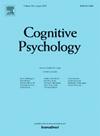In the United States, children are more likely than adults to condone discrimination
IF 3
2区 心理学
Q1 PSYCHOLOGY
引用次数: 0
Abstract
Discriminatory acts (i.e., harmful acts motivated by the victim’s group membership) have outsized consequences for the victim and for society relative to similar harms committed for other reasons. Here, we investigated the development of children’s evaluations of discrimination. Specifically, we asked whether children in the U.S., like adults, perceive discriminatory acts as distinctly harmful—that is, more harmful than identical acts that are not motivated by the victim’s membership in a particular group. Across 4 studies, we examined children’s (N = 588; ages 4–9 years) and adults’ (N = 623) perceptions of discriminatory acts versus identical acts motivated by other, personal reasons (Studies 1 and 2). In contrast to adults, children—particularly younger ones—rated the discriminatory acts as least harmful. In addition, whereas adults rated discrimination motivated by the victim’s membership in an unfamiliar social category (similar to gender or race) as more harmful than discrimination motivated by membership in an unfamiliar task-based group (a sports team), children did not (Study 3). Finally, both adults and older (but not younger) children rated discrimination against a member of a lower-status (vs. equal-status) group as more harmful (Study 4). These findings advance theory on the development of sociomoral cognition and provide new insight into how children perceive instances of discrimination and bias in their everyday lives.
在美国,儿童比成年人更容易容忍歧视。
歧视性行为(即因受害者的群体成员身份而产生的有害行为)对受害者和社会造成的后果比因其他原因造成的类似伤害要严重得多。在这里,我们调查了儿童对歧视的评价的发展。具体来说,我们询问了美国的儿童是否像成年人一样,认为歧视行为是明显有害的——也就是说,比不是因为受害者是某个特定群体的成员而导致的相同行为更有害。在4项研究中,我们检查了儿童(N = 588;年龄4-9岁)和成年人(N = 623)对歧视行为与由其他个人原因引起的相同行为的看法(研究1和2)。与成年人相比,儿童——尤其是年幼的儿童——认为歧视行为的危害最小。此外,尽管成年人认为受害者在一个不熟悉的社会类别(类似于性别或种族)中的成员身份所引发的歧视比在一个不熟悉的基于任务的群体(一个运动队)中的成员身份所引发的歧视更有害,但儿童却没有(研究3)。成年人和年龄较大(但不包括年龄较小)的儿童都认为对地位较低(与地位平等)群体成员的歧视更有害(研究4)。这些发现推进了社会道德认知发展的理论,并为儿童如何感知日常生活中的歧视和偏见提供了新的见解。
本文章由计算机程序翻译,如有差异,请以英文原文为准。
求助全文
约1分钟内获得全文
求助全文
来源期刊

Cognitive Psychology
医学-心理学
CiteScore
5.40
自引率
3.80%
发文量
29
审稿时长
50 days
期刊介绍:
Cognitive Psychology is concerned with advances in the study of attention, memory, language processing, perception, problem solving, and thinking. Cognitive Psychology specializes in extensive articles that have a major impact on cognitive theory and provide new theoretical advances.
Research Areas include:
• Artificial intelligence
• Developmental psychology
• Linguistics
• Neurophysiology
• Social psychology.
 求助内容:
求助内容: 应助结果提醒方式:
应助结果提醒方式:


